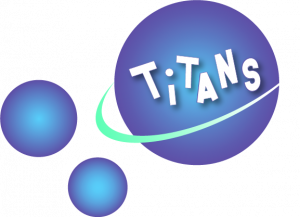Various stakeholders contributed to the work carried out in TRANSAT and benefitted from project outcomes. The production, storage, transport and other operations related to tritium will need a more specific framework in the long term. This project brought major inputs to the existing technical and legal frameworks, and to the development of appropriate rules, procedures, standards, legislation, etc. The outcomes also brought new technical knowledge to the fission and fusion community and helped public and private stakeholders prepare for an appropriate global management and financial environment in the short, medium and long term horizon.
TRANSAT HAD TWO MAIN IMPACTS
TRANSAT contributed to solving a number of key issues in the management of tritium in fission and fusion facilities, which will satisfy regulatory requirements and thus minimise environmental and possible resulting health effects.
The TRANSAT project aimed to expand the current body of knowledge in the field of technical solutions to mitigate tritium release. New permeation barrier concepts and effluent detritiation treatments were made available at a TRL that generates trust in the technology and requires limited development for industrial scale (TRL 5). Furthermore, improvement in tritium permeation and inventory modelling in fusion/fission facilities are also a key outcome of the project that will help stakeholders to assess the tritium distribution in their process and thus identify where mitigation systems should be envisaged.
Stakeholders will then have new ways of investigation for tritium management and tritium mitigation strategies.
In the field of dismantling, a methodology was proposed to build a dismantling plan, which was then applied on an installation with significant quantities of elementary tritium (10 TBq range). The expected impact was to validate a methodology for a safe dismantling of tritium handling facilities. Stakeholders as well as nuclear safety authorities benefitted from the results and recommendations. New international recommendations or rules may follow from the TRANSAT project results.
Tritiated waste management faces several issues, such as tritium mobility and uncertainty in the assessment of tritium inventory. The impact of the TRANSAT project benefits nuclear waste producers, nuclear waste repositories and nuclear safety authorities.
By developing new confining drum concepts and innovative tritium inventory measurement or assessment methodologies, TRANSAT improved the strategies for safe tritiated waste management at the European and international levels. The results and recommendations in the field of tritiated waste management have been disseminated and promoted, which could lead to new regulation policies.
TRANSAT expanded the existing body of knowledge on tritium and further enhanced regulatory oversight of tritium-related activities, especially in areas where tritiated particles are expected. The TRANSAT project contributed to increasing the accuracy of internal dosimetry for tritium and to improving the protection of human health from potential exposures to tritiated materials by preparing new standards and regulations. Communication in this field with stakeholders and more precisely with the International Commission on Radiological Protection (ICRP) and International Atomic Energy Agency (IAEA), was a key aspect of this project’s success.
TRANSAT paveD the way for robust science-based policy recommendations to decision makers in this area at EU level.
Based on the new results obtained in the project, the advisory board comments as well as feedback from research conducted abroad, a list of outcomes and recommendations was provided to stakeholders with whom close interactions were maintained throughout the project.
Considering the EC Nuclear Safety Directive from 2009 with its amendment from July 2014 introducing a high-level EU-wide nuclear safety objective and a set of rules to support the independence of national nuclear safety regulators, TRANSAT established close interactions with WENRA (Western European Nuclear Regulators’ Association) and ENSREG (European Nuclear Safety Regulators Group).
On this basis the project contributed to the development of new European and international policy frameworks and rules for safe tritium handling.

